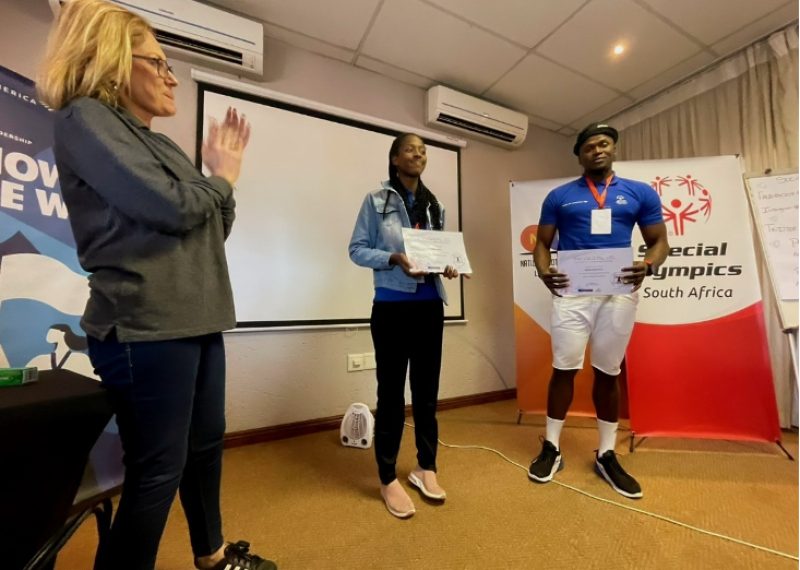
International Workers’ Day is celebrated around the world on 1 May. This year, it will take on an entirely new meaning for thousands of Special Olympics South Africa members.
The South African government recently awarded Special Olympics South Africa with a US$2.5 million grant to provide internships for over 4,000 athletes and Unified partners. The goal is to address the challenge of unemployment in South Africa through grant funding and forming relationships with public, private, and civil society organizations on projects that will significantly contribute to job creation.
The internships will be six months in length and will begin by having athletes and Unified partners trained in the SOfit curriculum.
This curriculum is a Unified approach to improving and protecting health and wellness for people with and without intellectual disabilities. SOfit offers participants a comprehensive, 360-degree look at wellness and the human spirit. Together, athletes and Unified partners are empowered to challenge and change the way they look at diet, daily exercise, and lifestyle choices.
The interns will then implement SOfit into schools and centers across South Africa designed for people with intellectual disabilities.
In addition, the interns will receive job skills training from partners of the Sport for Social Change Network, a program founded by Nike in 2007 that strives for strategic collaboration between the private and public sector to create opportunities for sports as an agent for change and development among young people.
The participants will be further supported through the Harambee Youth Employment Accelerator, a non-profit social enterprise building African solutions for the global challenge of youth unemployment. Harambee and Special Olympics South Africa will be using the internship as a pilot project to address the challenges of accessing employment opportunities faced by youth with intellectual disabilities.
Special Olympics South Africa CEO Ancilla Smith said this internship program will address other concerns the organization is facing, namely the deficit in athlete health and fitness brought about by the COVID-19 pandemic, the issue of retention and involvement of athletes once they leave the school system, and the high unemployment and poverty rates among Special Olympics athletes in South Africa.
She also noted the program will help drive their Unified Leadership initiative, as trained Athlete Input Council leaders and partners would be both benefiting from the internship and assisting Special Olympics South Africa in managing the project as team leaders.
Eltheo Maarman, 23, is one of these Athlete Input Council leaders and said he’s grateful to Special Olympics South Africa for giving him an opportunity to develop and empower himself.
“This means so much to me as it will help steer me in developing a career and hopefully get a job,” Eltheo said. “I would like to coach football (soccer) professionally or work full-time at a school and this is all helping to give me the confidence to work towards my dream.”
Nearly 50 Special Olympics South Africa master coaches will also support the program. Ancilla said they have been developing and training these master coaches for precisely this type of national implementation on a large scale.
Vincent Muso of Gauteng has been a Special Olympics coach for over five years. He said he’s seen many athletes leaving school with no plans of what they are going to do from a professional standpoint.
“This internship opportunity will play a huge role in uplifting these athletes so that they can also be respected members of society. I hope that through the community witnessing all these athletes benefitting from such an initiative, it will help change the perspective that people in South Africa have about people with intellectual disabilities.”









